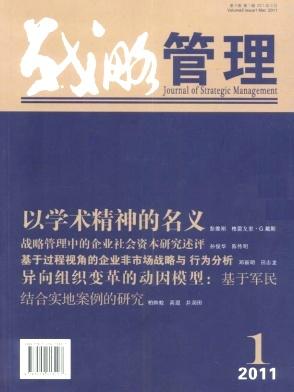Digital Transformation and Sustainable Development for Private and Public Organizations: Barriers and Opportunities
引用次数: 0
Abstract
Two terms that have gained traction in the academia and policy making are Digital Transformation and Sustainable Development of public and private organizations. Digital transformation can be defined as the increasing application of digitization and automation that has important impacts on the structure of business ecosystems and their products and services. The core of Digital Transformation is the overall digitization and cross-linking of the value creation process. On the other hand, Sustainable Development has been defined as “the ability to meet the needs of the present without compromising the ability of future generations to meet their own needs” (Brundtland, et al., 1987). As it can be observed, the two terms are defined in a vague way, however, their practical importance cannot be overstated. Despite the lack of a unified definition and methodological framework on how to define them, public and private organizations are making efforts to incorporate them in their practices. Consequently, the purpose of the current paper is to map the opinions of employers, employees, policy makers, academics and students on what Digital Transformation and Sustainable Development mean for themselves and their organization. To achieve the objective of the paper, a survey was developed and disseminated across Europe. The questionnaire contained questions on the process of Digital Transformation and Sustainable Development themselves, what the respondents think of and fear about those two terms, what are barriers and finally what skills are missing that their organization faces in their effort to achieve Digital Transformation and Sustainable Development. Initial results include the following: Missing skills by the employers and managers was considered the main internal barrier for achieving Digital Transformation and Sustainable Development on an organization. Finally, a series of statistical tests is performed to examine the synergies between Digital Transformation and Sustainable Development. For example, we wanted to investigate whether the answer to the question of whether the organization has experienced difficulties in finding appropriate people to achieve Digital Transformation is independent of the answer to the same question for Sustainable Development. The respondents that consider that their organization has difficulties in finding appropriate people for Digital Transformation are likely to answer that they face the same difficulty for Sustainable Development. Consequently, since there is an overlap between those skills, training people could offer a double advantage for any organization.私营和公共组织的数字化转型与可持续发展:障碍与机遇
在学术界和政策制定中获得牵引力的两个术语是公共和私营组织的数字化转型和可持续发展。数字化转型可以定义为越来越多的数字化和自动化应用,对商业生态系统及其产品和服务的结构产生重要影响。数字化转型的核心是价值创造过程的全面数字化和交叉链接。另一方面,可持续发展被定义为“在不损害后代满足其自身需求的能力的情况下满足当前需求的能力”(布伦特兰等人,1987)。可以看出,这两个术语的定义是模糊的,然而,它们的实际重要性怎么强调也不为过。尽管缺乏关于如何定义它们的统一定义和方法框架,但公共和私营组织正在努力将它们纳入其实践。因此,本文的目的是了解雇主、雇员、政策制定者、学者和学生对数字化转型和可持续发展对他们自己和他们的组织意味着什么的看法。为了实现本文的目标,制定了一项调查并在整个欧洲传播。问卷的问题包括数字化转型和可持续发展本身的过程,受访者对这两个术语的看法和恐惧,他们的组织在实现数字化转型和可持续发展的过程中面临的障碍是什么,最后是缺乏哪些技能。雇主和管理者的技能缺失被认为是组织实现数字化转型和可持续发展的主要内部障碍。最后,进行了一系列统计检验,以检验数字化转型与可持续发展之间的协同效应。例如,我们想要调查组织是否在寻找合适的人来实现数字化转型方面遇到了困难,这个问题的答案是否独立于可持续发展的相同问题的答案。认为他们的组织难以找到合适的人进行数字化转型的受访者可能会回答他们在可持续发展方面面临同样的困难。因此,由于这些技能之间存在重叠,培训人员可以为任何组织提供双重优势。
本文章由计算机程序翻译,如有差异,请以英文原文为准。
求助全文
约1分钟内获得全文
求助全文

 求助内容:
求助内容: 应助结果提醒方式:
应助结果提醒方式:


